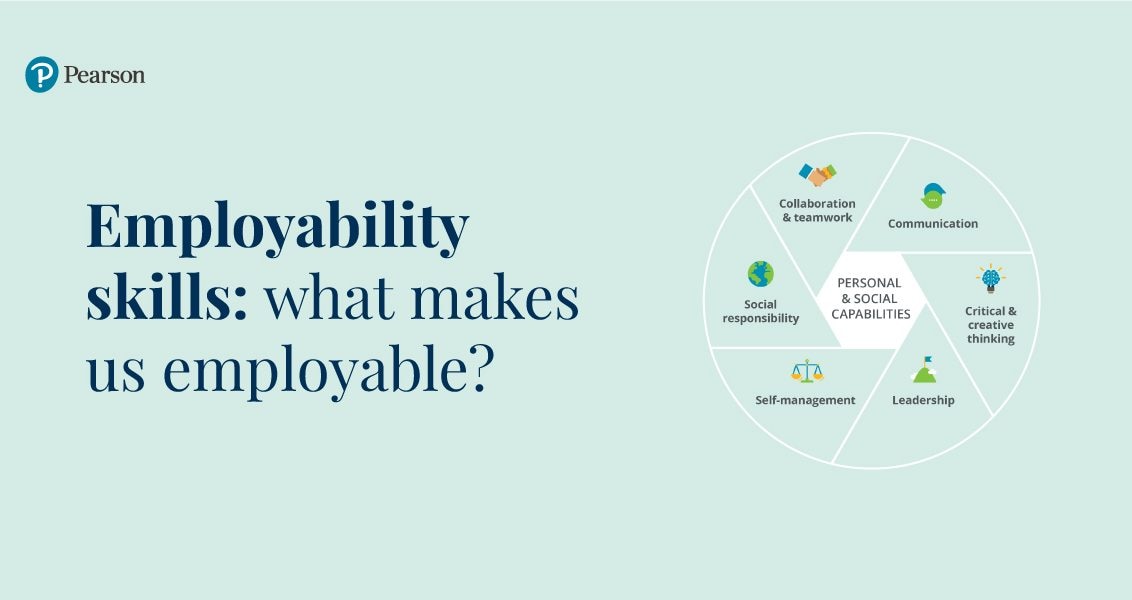Employability skills: what makes us employable?
by

Based on an extensive review of existing 21st-century frameworks, academic research and employment market trends, we’ve identified six common skill sets that are crucial for employability.
Educators, employers and researchers agree that to succeed in the workplace, learners need skills and competencies beyond technical or academic knowledge.
Why? Demographers have predicted that the first person who will live to be 150 has already been born and this means that children entering school today face the possibility of being the first generation of workers with 100-year careers.
The increasing pace of technological change, coupled with this predicted increase in longevity, means that the skills and knowledge learned in childhood, or a degree earned by learners in their twenties, won’t be enough for success in the long term.
Already, across the world, companies are struggling to find candidates to fill job vacancies and to effectively evaluate the skills that these candidates have. Jobseekers are finding themselves overqualified, underskilled, or both. They no longer have the relevant skill sets for advertised roles and are unable to compellingly communicate the skills they do have.
What we mean when we talk about employability skills
So, based on an extensive review of existing 21st-century frameworks, academic research and employment market trends, we’ve identified six common skill sets – we call them ‘personal and social capabilities’ – that are crucial for employability:
- Critical thinking
- Communication
- Creativity
- Collaboration
- Self-management
- Leadership
- Social responsibility
Critical thinking
Critical thinking – or problem solving in the face of ill-defined information – is a crucial skill: it leads to better learner engagement, academic progress, and future success in the workplace. We have identified four core skills that learners need in order to become critical thinkers:
- systems analysis: the ability to determine the relationship between variables in a system;
- argument analysis: the ability to draw logical conclusions based on data or claims;
- creation: the ability to construct a strategy, theory, method, or argument based on evidence ;
- evaluation: the ability to judge the quality of procedures or solutions.
Read more about teaching and assessing critical thinking or take a look at this summary for educators.
Communication
Communication skills are central to success in school, work, and life and strong communication skills are linked to higher grades and graduation rates. Additionally, in a recent Pearson survey, employers ranked communication as the second most important skill for employees to have, and one that is lacking in entry-level applicants.
Communication takes many forms — from writing a paper or reading a book to delivering a presentation and engaging in conversation or debate — and includes both the production and reception of communicated information.
Read more about teaching and assessing communication or take a look at this summary for educators.
Creativity
Educationalists and employers are putting increasing emphasis on the importance of creativity.
The pace of innovation has accelerated in recent years in response to new social, economic, and scientific challenges, and creativity skills will help learners participate and succeed as they join the workforce of the future.
There are many different approaches to defining creativity. However, creativity is commonly understood as the ability to produce novel and useful ideas. A person’s creative potential depends on their:
- level of expertise in a given subject
- ability to engage in unconventional or divergent thinking
- motivation to engage in creative activities
- personality factors, such as a tolerance for ambiguity and a preference for risk-taking.
Read more about teaching and assessing creativity or take a look at this summary for educators.
Collaboration
Students with good collaboration skills enjoy better academic performance. Additionally, as employers place greater emphasis on team-based work, learners who excel at collaboration are likely to be valued applicants.
Many frameworks for collaboration and teamwork exist, but the elements that are common across multiple frameworks include interpersonal communication, conflict resolution and task management.
Read more about teaching and assessing collaboration or take a look at this summary for educators.
Self-management
Self-management is twice as strong a predictor of a learner’s final grades than their IQ. It’s broadly defined as the ability to intentionally and strategically manage one’s emotions, behaviour, effort, and environment in the pursuit of goals.
We define self-management as consisting of six core skills: planning, organisation, persistence, progress monitoring, control and attention to detail.
Read more about teaching and assessing self-management or take a look at this summary for educators.
Leadership
Leadership is increasingly recognised as a key 21st-century skill that benefits learners in school, as they transition to the workplace, and throughout their careers.
We have defined leadership as consisting of eight core skills:
- Challenging assumptions
- Establishing vision and possibilities for the future
- Fostering collaboration by promoting communication and cooperation
- Respecting and acknowledging followers’ contributions
- Empowering followers to complete high quality work
- Maintaining accountability
- Providing mentorship and support to help followers achieve their goals.
Read more about teaching and assessing leadership or take a look at this summary for educators.
Social responsibility
Participating in social responsibility at a young age is associated with better outcomes in adulthood, including higher life satisfaction, higher educational attainment, and more civic engagement.
It’s also an important skill that employers expect in their hires.
Social responsibility occurs when an individual takes responsibility to behave ethically and with sensitivity towards social, cultural, civic, and environmental issues. Pearson has identified four key components of social responsibility – multicultural, ethical, civic and environmental – which we have termed ‘dimensions of competence.’
Read more about teaching and assessing social responsibility or take a look at this summary for educators.


